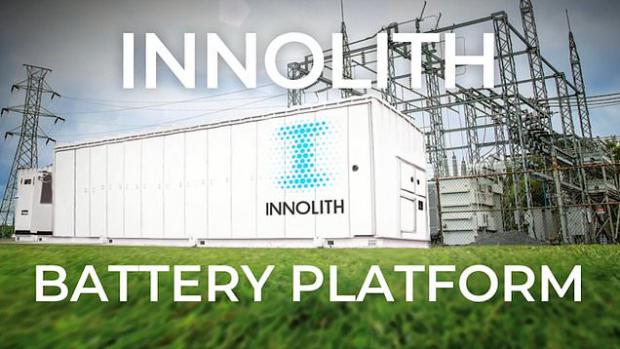
Breaking News
 The Vain Struggle to Curb Congressional Stock Trading
The Vain Struggle to Curb Congressional Stock Trading
The Tesla Model S Is Dead. Here's Why It Mattered
 America's First Car With Solid-State Batteries Could Come From This Little-Known EV Maker
America's First Car With Solid-State Batteries Could Come From This Little-Known EV Maker
 POWERFUL EXCLUSIVE: Learn Why Silver, Gold, & Bitcoin Plunged After JD Vance Announced...
POWERFUL EXCLUSIVE: Learn Why Silver, Gold, & Bitcoin Plunged After JD Vance Announced...
Top Tech News
 How underwater 3D printing could soon transform maritime construction
How underwater 3D printing could soon transform maritime construction
 Smart soldering iron packs a camera to show you what you're doing
Smart soldering iron packs a camera to show you what you're doing
 Look, no hands: Flying umbrella follows user through the rain
Look, no hands: Flying umbrella follows user through the rain
 Critical Linux Warning: 800,000 Devices Are EXPOSED
Critical Linux Warning: 800,000 Devices Are EXPOSED
 'Brave New World': IVF Company's Eugenics Tool Lets Couples Pick 'Best' Baby, Di
'Brave New World': IVF Company's Eugenics Tool Lets Couples Pick 'Best' Baby, Di
 The smartphone just fired a warning shot at the camera industry.
The smartphone just fired a warning shot at the camera industry.
 A revolutionary breakthrough in dental science is changing how we fight tooth decay
A revolutionary breakthrough in dental science is changing how we fight tooth decay
 Docan Energy "Panda": 32kWh for $2,530!
Docan Energy "Panda": 32kWh for $2,530!
 Rugged phone with multi-day battery life doubles as a 1080p projector
Rugged phone with multi-day battery life doubles as a 1080p projector
 4 Sisters Invent Electric Tractor with Mom and Dad and it's Selling in 5 Countries
4 Sisters Invent Electric Tractor with Mom and Dad and it's Selling in 5 Countries
Swiss startup invents higher-performance electric car battery can leave Tesla batteries in the dust

(Natural News) A startup in the tiny mountainous country of Switzerland promises to deliver what electric car giant Tesla Motors has failed to pull off. Its new lithium-ion battery is said to store and produce far more power for vehicles than existing designs.
Swiss company Innolith claims that an electric vehicle equipped with its lithium battery would run for up to 600 miles (966 km.) That level of performance blows its Tesla counterpart away – not that a Tesla needs any help in getting blown up.
Innolith is currently testing its lithium-ion battery in field conditions with the help of an American partner. It expects to launch the cell within three to five years.
Company spokespersons said they are waiting on the approval of the patents they have filed for their design.
The Innolith lithium-ion battery reportedly offers 1,000 watt-hours per kilogram (Wh/kg). It has nearly thrice the endurance of the Panasonic-manufactured 2170 li-ion cells that power the Tesla Model 3 electric car.
Currently, the batteries of the Model 3 give it a maximum range of 300 miles (483 km) on a full charge. If the electric vehicle equips the Innolith cells and if the Swiss design performs as advertised, its range gets doubled and its endurance gets tripled.
The U.S. Department of Energy is also working on a similar high-performance lithium-ion battery. But the American design is intended to reach 500 Wh/kg, just half of the performance of its Swiss counterpart. (Related: Why Volkswagen is going to CRUSH Tesla with rollout of dozens of well-engineered electric vehicles.)
New Swiss lithium battery ditches organic solvent for safer, better salt-like materials
"The [electric vehicle] revolution is currently stymied by the limitations of available batteries," explains Innolith chief executive officer Sergey Buchin. "Consumers want an adequate range on a single charge in an affordable [electric vehicle], and confidence that it is not going to catch fire."
Innolith attributes the higher performance of its cell design to its use of a specially designed electrolyte solvent that uses inorganic ingredients. Details remain sparse, but the inorganic solvent uses salt-like materials with higher stability.
"The absence of organic materials…removes the critical source of safety risk and chemical instability of high energy batteries," remarks Innolith CEO Alan Greenshields.
Not only does the salt-like materials give the Innolith Energy a longer charge, but they also improve the safety of people who drive electric cars, which are known to catch fire on a depressing basis.
Existing lithium-ion batteries are "wet" designs. Their electrolytes often use unstable chemicals as solvents.



